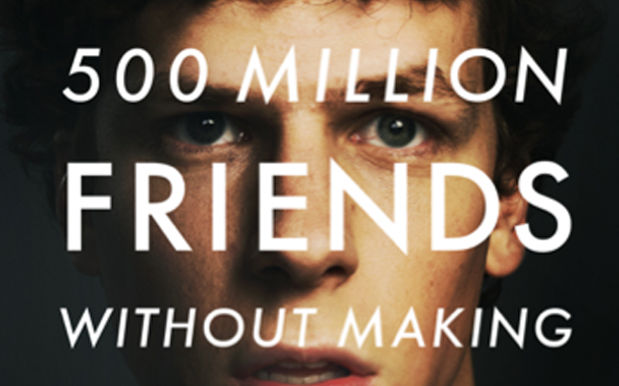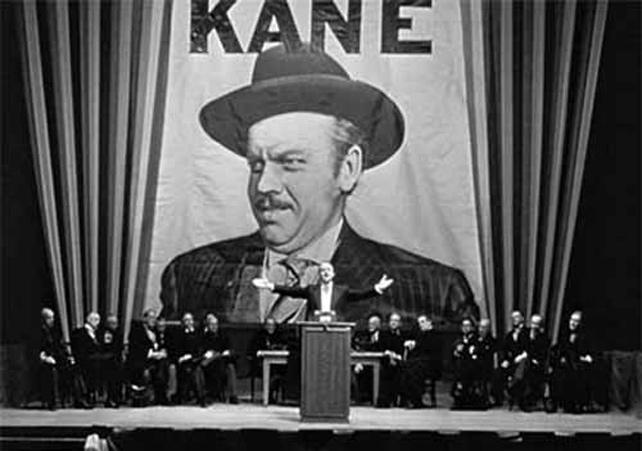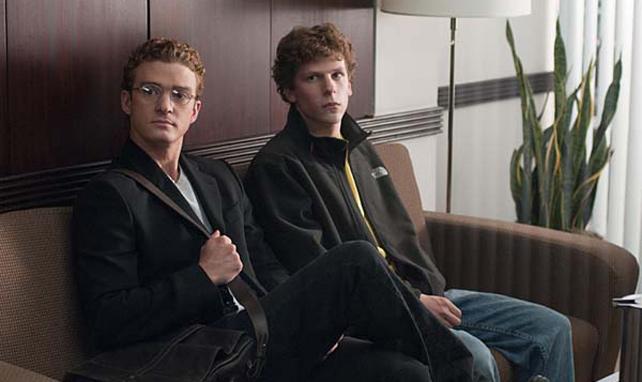
If the population suddenly gets wiped out from a flesh-eating virus or massive nuclear explosion I would be really disappointed if the only survivors (mega rich space pioneers) forever look back on Generation Y as “the facebook generation”. According to the rules of nameless commentators having been born between 1980 and 1994 I belong to the Y Generation but I would like – I would hope – there is something that represents my generation more than an online social network and the privileged white billionaires dealing with the burden of making shitloads of money.
Before I had the chance to see David Fincher’s ‘The Social Network’ a couple of weeks ago, I heard it being described as “the ‘Citizen Kane’ for the facebook generation”. This comparison immediately made me wary; Citizen Kane, the celebrated debut of Orson Welles at the helm, is widely revered as a masterpiece of American cinema and as the “greatest movie of all time” on various reputed lists. Shit, I’m as big a Fincher fan as anyone but I had my reservations in regards to jumping onto a Citizen Kane-sized bandwagon of cinephile enthusiasm.
So, in the quest for objectivity, I avoided reading or listening to critical rhetoric on the movie where possible, nor did I read The Accidental Billionaires Ben Mezrich’s book on which the movie was based and went into ‘The Social Network’ as open minded as possible.
In a super-minimalist nutshell: ‘Citizen Kane’ is about the rise of newspaper magnate Charles Foster Kane (Orson Welles), his relentless pursuit of wealth and power which ultimately sees him die alone. It’s all about lost childhood innocence, isolation and emptiness; the dissolution and destruction of the archetypal American Dream – financial success. Without even having to see ‘The Social Network’ there’s a few obvious connections between the storyline of the films: both tell the story about the rise of cashed up media figures: Kane (who was based on American publishing tycoon William Randolph Hearst) and Mark Zuckerberg; and both films illustrate the power and influence wielded by privately owned media.

‘The Social Network’ is told in a series of flashbacks back and forth between different time-frames, starting from the pivotal moment that ultimately triggered Zuckerberg to create the first incarnation of Facebook “FaceMash” – getting dumped by his girlfriend (Mara Rooney) at Harvard in 2003. The majority of the film flashes between the now infamous legal battle between Mark, his Facebook co-founder Eduardo Saverin (Andrew Garfield), and Harvard rich kids: twins Cameron Winklevoss and Tyler Winklevoss (each played with distinguishing nuance by the excellent Armie Hammer) and their business partner Divya Narendra (Max Minghella) who also claimed they had invented Facebook; and the astounding progression of Facebook from an intra-Harvard network to expansion across Ivy League universities to Silicon Valley where Zuckerberg is wooed by Sean Parker (a perfectly cast Justin Timberlake) and world domination.

This incredibly clever slowly pieced together chronological jigsaw that David Fincher and writer Aaron Sorkin have built is a great strength of the film. Similarly the power of ‘Citizen Kane’ is harnessed through the narrative structure that relied on flashbacks and interviews – a hugely innovative cinematic technique for that time.
The movies and their central characters definitely share the same theme: life is lonely at the top. Kane and Zuckerberg are definitely very different personalities; Kane was this charming, dominating, somewhat poetic alpha male while in many ways Jesse Eisenberg’s Mark Zuckerberg is the opposite: a simpering, weak, socially awkward social climber with a chip on his shoulder about being a scholarship student on the moneyed Harvard campus. Ultimately, though, they represent the same thing: ambition driven by the quest for power (or popularity/belonging in Mark’s case) inevitably ends in isolation.
If you spend some time mulling on it there are so many parallels to find between ‘The Social Network’ and ‘Citizen Kane’. In certain ways Fincher’s representation of Mark Zuckerberg rings true as a Charles Foster Kane for the digital age. The comparison between films seems like a fitting sign of the times: perhaps we need a new film that represent the tribulations and pitfalls of relentlessly pursuing the American dreams? – After all, the era of print has ended in the stead of electronic media so perhaps it’s just time to pass the torch on to a new piece of popular culture the kids can relate to?
‘The Social Network’ is a very good movie – the story itself is endlessly enthralling and Fincher delivers nonstop punches throughout, it’s (suprisingly, considering the trailer) very funny in parts, Sorkin’s script is fantastic, the acting is great – particularly the ad infinitum geek boy riffing of Eisenberg’s deadpan Zuckerberg, the score by Trent Reznor is seriously perfect, it’s genuinely entertaining and well worth seeing.
Is it the next Great American Movie or destined to be the greatest movie of our generation? I’m not sure that it is. Welles’ directorial debut marked a change in film making, in its style, its innovative cinematography, groundbreaking narrative technique and music. But, whether I want to face it or not, there’s no escaping the fact that Facebook has re-defined our lives (even if not directly as users) and maybe it is the most enduring, important piece of history in the Gen Y time capsule.
The movie opened in cinemas last Thursday.



